detail profile warner oland

Warner Oland
Johan Verner Ölund
atau dikenal sebagai
Riwayat Hidup
From Wikipedia, the free encyclopedia
Warner Oland (born Johan Verner Ölund, October 3, 1879 – August 6, 1938) was a Swedish-American actor most remembered for playing several Chinese and Chinese-American characters: the Honolulu Police detective, Lieutenant Charlie Chan; Dr.
Fu Manchu; and Henry Chang in Shanghai Express.
His family emigrated to the United States when he was 13.
He pursued a film career that would include time on Broadway and dozens of film appearances, including 16 Charlie Chan films.
After several years in theater, including appearances on Broadway as Warner Oland, in 1912 he made his silent film debut in Pilgrim's Progress, a film based on the John Bunyan novel.
As a result of his training as a Shakespearean actor and his easy adoption of a sinister look, he was much in demand as a villain and in ethnic roles.
Over the next 15 years, he appeared in more than 30 films, including a major role in The Jazz Singer (1927), one of the first talkies produced.
Oland's normal appearance fit the Hollywood expectation of caricatured Asianness of the time, despite his having no definitively proven Asian cultural background.
Oland portrayed a variety of Asian characters in several movies before being offered the leading role in the 1929 film, The Mysterious Dr.
Fu Manchu.
It was the first onscreen portrayal of the Fu Manchu character in film.
Oland continued to appear onscreen as an Asian, probably more often than any other white actor in the history of cinema.
In Old San Francisco, Oland played an Asian unsuccessfully impersonating a white man.
Oland was the first actor to play a werewolf in a major Hollywood film, biting the protagonist, played by Henry Hull, in Werewolf of London (1935).
Once again, Oland's character was Asian.
A box office success, The Mysterious Dr.
Fu Manchu made Oland a star, and during the next two years he portrayed the evil Dr.
Fu Manchu in three more films (although the second one was purely a cameo appearance).
Firmly locked into such roles, he was cast as Charlie Chan in the international detective mystery film Charlie Chan Carries On (1931) and then in director Josef von Sternberg's 1932 classic film Shanghai Express opposite Marlene Dietrich and Anna May Wong.
The enormous worldwide box office success of his Charlie Chan film led to more, with Oland starring in 16 Chan films in total.
The series, Jill Lepore later wrote, "kept Fox afloat" during the 1930s, while earning Oland $40,000 per movie.
Oland took his role seriously, studying the Chinese language and calligraphy.
Info Pribadi
Peran Yang Di Mainkan Warner Oland
 A history of antiAsian racism and...
A history of antiAsian racism and...Yellowface: Asian Whitewashing and Racism in Hollywood 2019
A history of anti-Asian racism and yellowface in Hollywood after the 1941 Pearl Harbor attack.
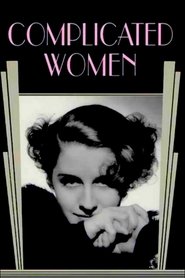 Looks at the stereotypebreaking films of...
Looks at the stereotypebreaking films of...Complicated Women 2003
Looks at the stereotype-breaking films of the period from 1929, when movies entered the sound era, until 1934 when the Hays Code virtually neutered film content. No longer portrayed as virgins or vamps, the liberated female of the pre-code films had dimensions. Good girls had lovers and babies and held down jobs, while the bad girls were cast in a sympathetic light. And they did it all without apology.
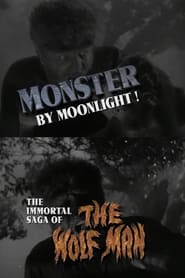 Starting with The Wolf Man in 1941...
Starting with The Wolf Man in 1941...Monster by Moonlight! The Immortal Saga of 'The Wolf Man' 1999
Starting with "The Wolf Man" (in 1941), Universal Studios made five movies featuring The Wolf Man, a character portrayed by Lon Chaney, Jr. Monster by Moonlight! explores these movies. Rick Baker explains how the make-up was done on Chaney's character. Screenwriter Curtis Siodmak took very little from earlier werewolf legends, providing his own story for some of the films. This documentary displays clips from several other movies, including "Abbott & Costello Meet Frankenstein" (1948) and "House of Dracula" (1945).
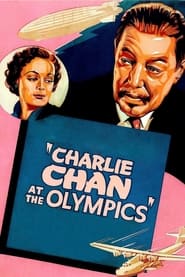 Get ready for a Gold Medal...
Get ready for a Gold Medal...Charlie Chan at the Olympics 1937
Get ready for a Gold Medal murder mystery! This "tense, thrilling mystery" ('California Congress of Parents and Teachers') pits Charlie Chan against international spies who are using the Berlin Olympic games as the perfect cover...for cold-blooded murder!
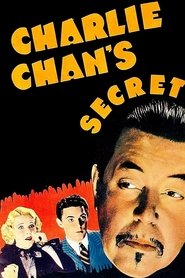 Allen Colby heir to a huge...
Allen Colby heir to a huge...Charlie Chan's Secret 1936
Allen Colby, heir to a huge fortune, is presumed drowned after an ocean liner sinks off the coast of Honolulu. Mysteriously, Colby reappears at his mansion only to be murdered soon after. When his body is discovered during a seance, everyone in attendance becomes a suspect, and it's up to Chan to find the murderer before he or she strikes again.
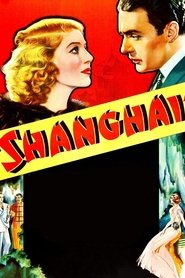 A New York socialite travels to...
A New York socialite travels to...Shanghai 1935
A New York socialite travels to Shanghai to visit her ailing aunt and falls in love with a Russian banker, who harbors a family secret.
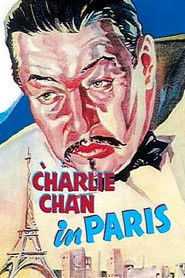 Charlies visit to Paris ostensibly a...
Charlies visit to Paris ostensibly a...Charlie Chan in Paris 1935
Charlie's visit to Paris, ostensibly a vacation, is really a mission to investigate a bond-forgery racket. But his agent, apache dancer Nardi is killed before she can tell him much. The case, complicated by a false murder accusation for banker's daughter Yvette, climaxes with a strange journey through the Paris sewers.
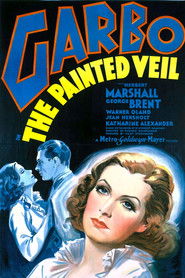 The wife of a doctor in...
The wife of a doctor in...The Painted Veil 1934
The wife of a doctor in China falls in love with a diplomat.
 At her Chinese fathers bidding a...
At her Chinese fathers bidding a...Daughter of the Dragon 1931
At her Chinese father's bidding, a woman goes to murder an enemy and meets a Scotland Yard detective.
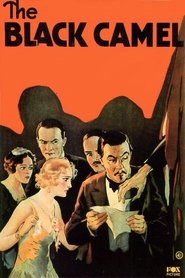 Movie star Shelah Fane is seeing...
Movie star Shelah Fane is seeing...The Black Camel 1931
Movie star Shelah Fane is seeing wealthy Alan Jaynes while filming in Honolulu, Hawaii, but won't marry him without consulting famed psychic Tarneverro first. Enter inspector Charlie Chan of the Honolulu Police, investigating the unsolved murder, three years earlier, of a Hollywood actor.
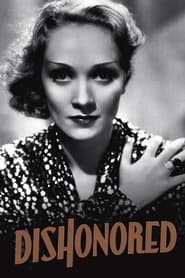 The Austrian Secret Service sends its...
The Austrian Secret Service sends its...Dishonored 1931
The Austrian Secret Service sends its most seductive agent to spy on the Russians.
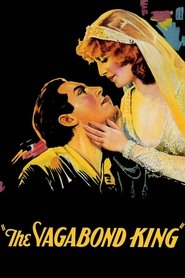 The story takes place in medieval...
The story takes place in medieval...The Vagabond King 1930
The story takes place in medieval France. Poet-rogue Francois Villon, sentenced to hang by King Louis XI for writing derogatory verses about him, is offered a temporary reprieve. His hanging will be postponed for 24 hours, and in that time he must defeat the invading Burgundians and win the love of the beautiful Katherine.
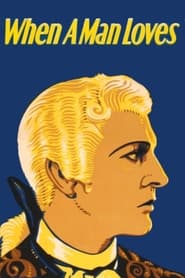 A nobleman studying for the priesthood...
A nobleman studying for the priesthood...When a Man Loves 1927
A nobleman studying for the priesthood abandons his vocation in 18th Century France when he falls in love with a beautiful, but reluctant, courtesan.
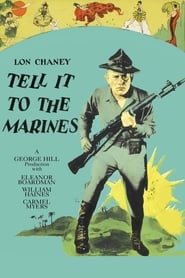 US Marine Sergeant OHara has his...
US Marine Sergeant OHara has his...Tell It to the Marines 1926
U.S. Marine Sergeant O'Hara has his hands full training raw recruits, one of whom, 'Skeets' Burns, is a particular thorn in his side. If Burns's lackadaisical approach to the military were not bad enough, he also makes advances on nurse Nora Dale, whom Sergeant O'Hara secretly loves. Nora is oblivious to O'Hara's feelings and is attracted to the handsome 'Skeet.' But an indiscretion turns her against him, and it takes an expedition to China and a battle with a warlord's bandit brigade to sort things out among the nurse and her two Marines.
 If there was one thing that...
If there was one thing that...Don Juan 1926
If there was one thing that Don Juan de Marana learned from his father Don Jose, it was that women gave you three things - life, disillusionment and death. In his father's case it was his wife, Donna Isobel, and Donna Elvira who supplied the latter. Don Juan settled in Rome after attending the University of Pisa. Rome was run by the tyrannical Borgia family consisting of Caesar, Lucrezia and the Count Donati. Juan has his way with and was pursued by many women, but it is the one that he could not have that haunts him. It will be for her that he suffers the wrath of Borgia for ignoring Lucrezia and then killing Count Donati in a duel. For Adriana, they will both be condemned to death in the prison on the river Tigre.
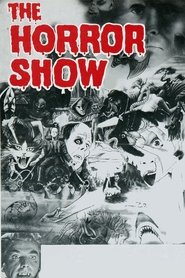 A history of horror movies
A history of horror movies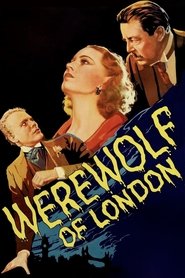 A strange animal attack turns a...
A strange animal attack turns a...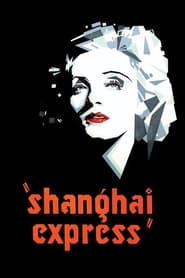 A beautiful temptress rekindles an old...
A beautiful temptress rekindles an old...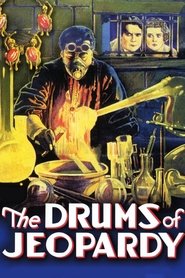 A mad doctor is determined to...
A mad doctor is determined to...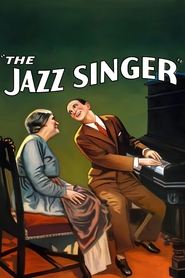 A young Jewish man is torn...
A young Jewish man is torn...